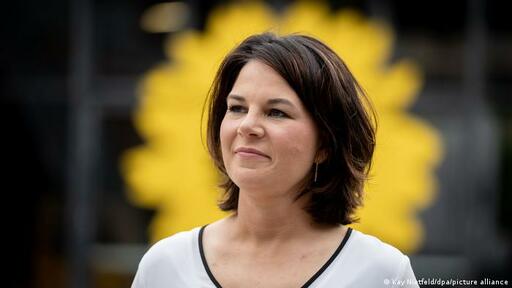On the tone – Der Spiegel (Florian Gathmann, Matthias Gebauer, Veit Medick, Christoph Schult, Severin Weiland):
‘When the German chancellor speaks to Vladimir Putin by phone, the Russian president is always extremely polite. People familiar with the calls say that his voice it rather soft and that the tone is less preachy than in his public appearances. Putin usually speaks a few sentences of German as a greeting before switching to Russian, with an interpreter then jumping in to translate.’
(…)
‘These telephone calls have followed the same pattern for long stretches since the beginning of the war: The chancellor criticizes the brutal actions of Russian troops, he calls for an end to hostilities and blames Moscow for the global consequences of the war. Putin, in turn, justifies the invasion, speaks of self-defense and casts all the blame on Kyiv.
During the last bilateral telephone conversation in mid-May, however, Putin uttered a sentence that made the chancellor and his advisers sit up and take note: During the 75-minute conversation, Putin said that both sides had made mistakes. Both sides? Meaning Putin, as well? Were they just empty words or was the Russian president serious?’
(…)
‘Secondly, there is Putin himself. The common line of argument is that as long as Putin continues to cling to his imperial fantasies, it will more or less be impossible to speak on reasonable terms with the Kremlin leader. They argue that a man who built a war on lies and worked for years to deceive the West can simply no longer be trusted. In Poland and the Baltic states, for example, Scholz's and Macron's telephone calls with Putin are dismissed as being "pointless."
The legacy of Germany's Russia policies also plays a role. Many believe that Germany still hasn't properly processed the naiveté with which several successive German governments sought to build bridges to Moscow. No one wants to be caught in the act of once again engaging in dialogue with Putin's regime – which could make it look like nothing has been learned. Instead, most parties involved are seeking the maximum possible distance from Russia. In recent days, Germany's chancellor has stressed that pressure must be "maintained" on Putin. The message: This isn't the time for rapprochement.’
(…)
‘It was, of course, careless of him to express such thoughts publicly. On the other hand, it's part of every diplomat's job description to play out scenarios and consider options for talks. As bad as war is – and Russia's actions in Ukraine are indeed barbaric – it's always necessary to prevent even worse from happening: humanitarian catastrophes, an expansion of the war to other countries, a nuclear escalation. That's why the Russians and Americans maintained contact throughout the Cold War and the German government negotiated with the Afghan Taliban for years, even though they had thousands of lives on their conscience.’
(…)
‘Outside of parliament, in the foreign and security policy community, the debate has already advanced. Some there are openly advocating direct talks with Russia. "We must seek contact with Moscow, if only to protect our own security," says Wolfgang Richter, a retired colonel and researcher at the German Institute for International and Security Affairs (SWP) in Berlin. He notes that the risk of military incidents is "very high" on the long NATO borders with Russia and Belarus, where many solders are facing each other. "This necessitates exchanges on security issues with Russia," he says. "You have to talk and keep military contacts to prevent or de-escalate incidents. We can't make that dependent on whether or not Putin is still in office."
One retired soldier asserts that "the pressure will increase to feel out when a cease-fire will be possible. And that has to be negotiated." It's clear, he says, that Ukraine's independence as a state cannot be at stake. "In contrast, Ukraine's neutrality with realistic security guarantees could be an option worthy of consideration." Richter adds: "It may be painful, but you have to accept that the other side also has security interests. And then you have to see if compromises are possible."
Thorsten Benner, director of the Global Public Policy Institute in Berlin, believes the situation has reached a critical point. Talks must "be guided by two principles," he says: "Ukraine must decide. And Germany must not try to go it on its own. The biggest danger is that we now come up with our own plan again. That already failed in Minsk, even though the intentions were good."’
(…)
‘When the foreign minister meeting finally happened on Friday, though, Lavrov didn't give them the chance. Originally, Baerbock had been assigned with the job of confronting the Russian foreign minister's statements on behalf of the G-7. Ultimately, though, Lavrov left when Baerbock started to speak, avoiding confrontation.
Later, the German foreign minister said: "The fact that (he) spent a large part of the negotiations not in but outside the room underlines that there is a not a millimeter of willingness to talk on the Russian side."
Baerbock, for her part, wants to keep a distance from Russia. She rules out negotiations with Putin because of the Russian atrocities in Bucha and other places: "That says everything about the fact that you can't negotiate with this Putin right now," Baerbock told DER SPIEGEL in an interview last week. "He is all about annihilation. Even of children."’
Read the article here.
Putin is barbaric, but as long as they are in power you have to talk to the barbaric people. Well, Baerbock differently.
The West is on the side of Ukraine and Ukraine must decide but not without endangering the security interest of the West, no direct confrontation with Russia.
An honest diplomat is not always a popular diplomat, but the question remains: how will the relationship with Russia look like after the war? It might take years, but there will be an after the war.
